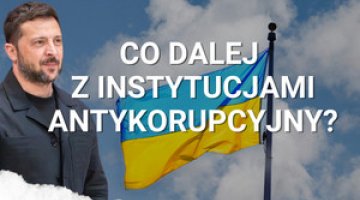Russia recognises Donbas separatists’ documents
Under a decree signed on 18 February by President Vladimir Putin, the Russian Federation recognised the documents issued to Ukrainian citizens and stateless persons by the governments of the ‘people’s republics’. The decree covers: identity cards, education and/or qualification certificates, civil status documents, and vehicle registration documents. The decree emphasises the humanitarian aspect of the regulations and their temporary nature—they will remain in force until the situation in Donbas has been politically settled “on the basis of the Minsk Agreements”. The names of the ‘people’s republics’ are not mentioned; instead reference is made to “certain regions of the Donetsk and Luhansk Oblasts of Ukraine.” The decree has been severely criticised by representatives of Ukraine, the USA, France and Germany, according to whom it is in contradiction to the Minsk Agreements, places Russia in the position of a party to the conflict, and may be a sign that it will recognise the independence of the so-called Donetsk and Luhansk People’s Republics.
Commentary
- Russia introduced the regulations unilaterally, without making arrangements or consulting the other Normandy Format countries. It appears that, regardless of the genuine humanitarian and propaganda reasons (a sign for residents of the ‘DPR’ and the ‘LPR’ that they can count on Moscow), the main goal of passing the decree was Moscow’s desire to broaden its own room for manoeuvre and to increase the pressure on Berlin and Paris – and indirectly also on Kyiv – to push through a resolution of the conflict that would be beneficial to it (holding elections in the occupied part of Donbas and legitimising the elites of the ‘people’s republics’ loyal to it as part of the Ukrainian state). The decree intensifies the uncertainty about Moscow’s intentions and further plans. On the one hand, this creates the impression that Russia is not ruling out recognising the independence of the ‘DPR’ and the ‘LPR’ (by analogy to Abkhazia and South Ossetia) and, on the other, that it may be considering unfreezing the conflict as was the case with Transnistria.
- Vladimir Putin signed the decree while the Munich Security Conference was under way, during which the Ministers of Foreign Affairs of the Normandy Format countries met. This circumstance and the fact that the regulations came into force shortly after the end of intensive clashes between the separatists and the Ukrainian forces near Avdiivka have strengthened the impression that Moscow is applying pressure on Western countries regarding the Donbas issue. Given the present international situation (the new US administration and the upcoming elections in France and Germany), it cannot be ruled out that Moscow will test Western leaders’ reactions by applying a fait accompli policy.
- Moscow is not issuing Russian passports to residents of the ‘DPR’ and the ‘LPR’ as was the case with Abkhazia and South Ossetia and also Transnistria. This is probably out of fear that sanctions could be expanded. Furthermore, the need to fully finance more potential para-states would be an extensive burden for it. Moscow has maintained intense economic contacts with the ‘people’s republics’: in 2016 Gazprom reportedly supplied 2.39 billion m3 of natural gas to them (and is demanding Kyiv pay for it), and Russian firms sell food on commercial terms in these territories (this is classified in Russian statistics as trade with Ukraine). The significance of these relations will increase if the blockade of the ‘DPR’ and the ‘LPR’ is reinforced (Ukrainian activists have been blocking railroad coal transports since the end of January).





